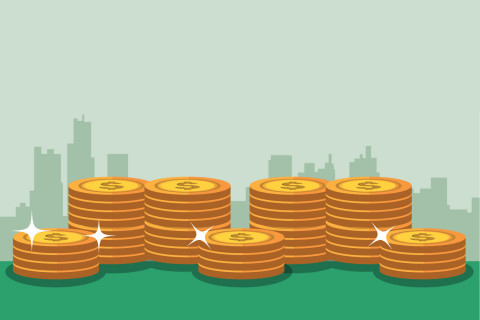Showing 1 - 10 of 14
The hidden dangers of AI
Life, James Hein, Published on 24/09/2025
» There's going to be a lot on artificial intelligence topics this week so let's get started. For the time being, the most common way to leverage an AI product is using a prompt of some kind. To that end, you will see lots of posts on platforms declaring that they have the best god-level prompts for large language models (LLMs). A prompt is something like, "What are the top ten songs from Depeche Mode?", or "Draw me a picture of a frog on a toadstool in the style of Alice In Wonderland with vivid colours". The more detailed and nuanced the prompt, the better the desired outcome tends to be. As with everything in the computer world, there are bad actors looking to take advantage of this.
Jetsons cars finally take off
Life, James Hein, Published on 26/03/2025
» Some readers will remember the old cartoon The Jetsons. This promised a future with flying cards, robot assistants and helpful computer tools. We have or are getting very close to the robot assistants, and the latest artificial intelligence offerings seem to be the automated helpers. Missing to date are the flying cars. That may have changed with the new Jetson ONE, a single person flying car I saw a demonstration of in a recent video. It looked good, seemed to fly with good stability and landed without any issue. You can find the demos with a simple search. The craft has vertical take-off and landing capability. However, I shudder to think of what thousands of these might look like in the skies above a city without some serious improvements in driving and collision avoidance.
Doom, not gloom kicks off my 2025
Life, James Hein, Published on 29/01/2025
» Over the years, the game Doom has been ported onto some amazing platforms including a pregnancy test kit screen. The latest iteration of this practice has turned up in a version that will run in a .PDF file. If you are like me, then this will cause your mental processing to pause for a moment and your next thought may well be: "Wait, what?" The Portable Document Format (PDF) was developed to present documents in a manner that is independent of the software, hardware and operating system showing them. While it does this well, some malware writers have exploited its complexities.
Imagining a world without cash
Life, James Hein, Published on 08/05/2024
» How safe are you in a purely digital economy? If you are carrying cash, someone can of course rob you, or you can lose it or give it to someone. You can also have a stash of it at home for emergencies or for buying something from a garage sale. For the most part, you retain control over any cash you manage. Electronic cash can still be stolen and your ability to spend it can be taken by someone else if your details get into the wrong hands. However, it's convenient, just tap and go, or in some cases, just wave your smartphone over a pad. While you have no idea where your money actually is, a small piece of plastic, your watch or a phone can retrieve it for you for a payment. You can even use it to get cash from a wall.
AI remains a beta tool for journalists
Life, James Hein, Published on 27/03/2024
» Unless stated otherwise, I do not use AI tools to write my articles. The main reason is that I enjoy the discovery and research process. I state this because apparently 45 finalists for this year's Pulitzer Prize in journalism disclosed their use of AI tools while developing their work to varying degrees. I tend to use examples from past work environments, articles on the latest technologies and other interesting reports that catch my eye. Given the latest revelations from the current crop of AI Large Language Models, if you use them without care, what you are reporting or writing about could be completely inaccurate. For the time being it's recommended you use such tools as a possible confirming source, rather than a primary one.
YouTube hypocrisy deserves flagging
Life, James Hein, Published on 27/09/2023
» YouTube is behaving badly again. A prominent presenter I occasionally watch, who has millions of subscribers, has been demonetised, for some possible actions 20 years ago. This is not a commentary on potential innocence or guilt, but on YouTube's processes. There are people whose lives are supported by revenue from their presentations on YouTube. This ranges from small fries all the way up to the big fish like the one here. When an individual is demonetised they can lose the ability to support themselves. In this case allegations were made by the media, not the police or authorities, and at the time of writing there have been zero charges made. YouTube is essentially saying, bring us all your viewers so we can hit them with ads and we can make lots of money, but you will be getting nothing for your work.
Fact checkers get it wrong
Life, James Hein, Published on 13/09/2023
» First off, I have some follow-up news on an earlier story. The Australian fact checking group I mentioned being paid by Meta has been suspended for providing a series of "false" fact checks that turned out to be actually true. As I pointed out, many of the so-called fact checkers don't have any experience in the field they are apparently providing the check for. This will be particularly true in any politically charged area.
Those pesky pixel trackers
Life, James Hein, Published on 12/10/2022
» I've written about the tracking in TikTok. I recently found out you don't need to have the app installed to be providing tracking data to this platform. The term you need to learn today is "tracking pixel".
Banner year for Zoom, Microsoft Teams subpar
Life, James Hein, Published on 09/12/2020
» 'Zoom records another bumper quarter" is an unsurprising headline. While Covid-19 still has a grip on leaders and businesses, online meetings remain a big choice, but for how long? Over the years I've noticed that management falls into distinct groups when it comes to working from home. Most want to see their workers in the office as much as possible but some do support remote work and work-from-home as long as the work is being completed. For those who have to travel long distances to and from work, it also provides an opportunity for more sleep and less stress. For an eye-opener on the importance of this, I recommend that everyone read Why We Sleep by Matthew Walker for data on the importance of sleep, including its benefits to organisations.
World wide the web isn't free
Life, James Hein, Published on 30/09/2020
» The dream of an open, transparent Internet that accepts all and their opinions is all but dead. The story starts on Jan 1, 1983, when the then ARPANET adopted the TCP/IP protocol and then really started to take off in 1990 after Tim Berners-Lee invented the World Wide Web. It began like most things, simply, with topic driven bulletin boards and online forums, then it moved to personal websites and the first blogs. At the turn of the century this morphed into the Web 2.0 where social media platforms were developed and started to grow and opened up the world and different countries to each other at the personal level.












